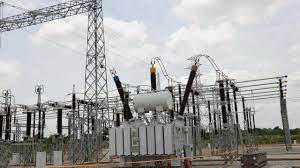Lagos — GE, a world leader in power technology and services, has reiterated its commitment to support a robust, timely, just, and inclusive energy transition and implementation of power services as it plans for improved energy access for Nigeria and Sub-Saharan Africa.

According to the Africa Energy outlook 2022, Africa accounts for less than 3% of the world’s energy-related carbon dioxide (CO2) emissions to date and has the lowest emissions per capita of any region.
In addition, there are still over 580 million people on the continent without reliable energy, and the demand for electricity is expected to continue to increase as populations rise, industrialization ambitions grow, and urbanization continues to fuel the need for more electricity.
Nigeria, the largest economy in Sub-Saharan Africa, is endowed with huge oil, gas, hydro, wind, and solar resources, but constraints in the power sector impact growth and industrialization.
According to its Energy Transition plan, Nigeria aims to achieve net zero by 2060. As the country works towards scaling up energy access for development, attracting investment and expanding the energy mix to include more renewables, Nigeria can leverage its long-standing collaboration with global and experienced OEMs that have a track record in supporting national energy transition ambitions.
At the 9th edition of the Nigeria Energy Conference themed ‘Affordable, Reliable and Sustainable Energy through Collaboration’, Mohammed Mijindadi, GE Nigeria President and Sales Director Anglophone and Francophone Africa, GE Gas Power, said “As a world leader in developing innovative energy solutions, GE can provide cutting edge technologies to support the country’s plan to improve and strengthen the grid infrastructure, reduce reliance on diesel generators by improving access and efficiency of thermal assets, diversifying the energy mix especially with hydropower and provide the technical expertise required to support industrialisation and the energy transition,”
Speaking further on GE’s support for the energy transition and decarbonisation in sub-Saharan Africa, he highlighted the company’s continued investments in research and development to provide power solutions that meet the growing energy needs of different countries.
“With one-third of the world’s electricity generated with the help of our technology, GE understands that the power sector serves as a model for other industries around the world. We believe that lower-carbon solutions, such as renewable energy supported by gas power, can contribute to a more decarbonized energy future thus offering customised technologies for countries. So far, we have installed over 100 power plants across renewables, gas, and steam plants, generating power in up to 22 countries in Sub-Saharan Africa”.
GE is committed to supporting the next evolution of Sub-Saharan Africa’s energy system and believes that the accelerated and strategic deployment of renewables and gas power can change the trajectory for climate change in the region’s future energy mix while spurring industrialization and addressing climate change ambitions.
GE delivers across the entire energy ecosystem from generation to transmission and distribution and throughout Nigeria, GE-built technologies are supported by local service and maintenance teams from the company to ensure access to reliable and sustainable energy.
Recent successes include the successful rehabilitation of Niger Delta Power Holding Company’s (NDPHC) Power Plants in Calabar and Sapele, enabling the plants to reliably secure and restore the supply of up to 360 megawatts (MW) of electricity to the national grid, the equivalent electricity needed to power approximately two million Nigerian homes.
Follow us on twitter



